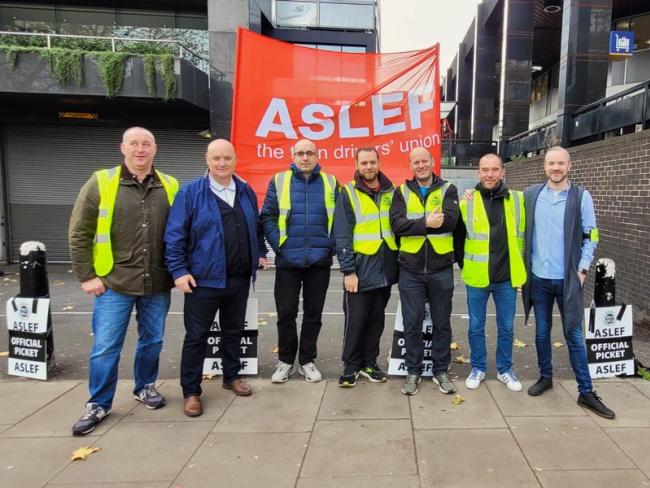
Aslef pickets outside Euston Station, London, in 2022 as part of their long pay fight. Photo Workers.
Train drivers’ union Aslef has reached agreement with the incoming Labour government to resolve a pay dispute in most of the passenger train operators. It has involved 18 days of strikes. The train operators concerned are either publicly owned or under tight government control.
The drivers have not had a pay increase since 2019, a period that saw annual inflation peak at 14.2 per cent. RPI inflation in July stood at 3.6 per cent.
The union will put the offer out to a vote by members. If accepted this will increase pay by 5 per cent for 2022-23, 4.75 per cent for 2023-24, and 4.5 per cent for 2024-25.
The previous government refused to give drivers a pay increase unless they accepted unpalatable changes to terms and conditions. The drivers were solid and persistent in resisting that. The incoming government has removed this condition – the key that has unlocked a deal.
Meanwhile, there are moves to settle the long-running pay dispute involving the other train operators’ rail staff, represented by RMT, TSSA and Unite unions.
The Aslef deal will doubtless encourage other unions to achieve “no-strings” pay increases. All unions have reached deals with numerous other rail employers over the last four years. None kept pace with inflation, but crucially the deals were achieved without insistence on worsening working practices and conditions.
Like its predecessors, Labour is set on making big changes to the rail industry, to working practices, and to conditions of employment.
